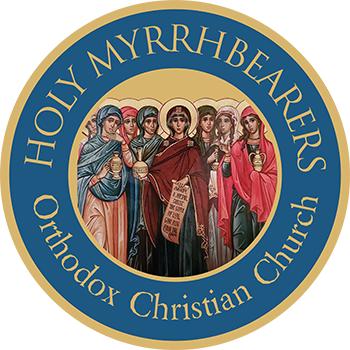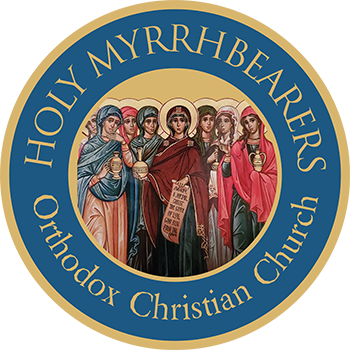September 28, 2014

By Fr. Lawrence Farley
Sep 24, 2014
Some people have told me that when they are in the hospital, they hate to see a priest enter a patient’s room because they regard his visit as a harbinger of doom. That is, they have heard of the sacrament of “Extreme Unction” that the Church insists on giving to those who are about to die, and assume that the visiting priest has come on that errand. They assume that the priest is about to administer Extreme Unction to some poor patient, who will then promptly die, as expected. Perhaps they have seen Father Mulcahy give some Extreme Unction to soldiers dying on the television show “M.A.S.H.” and they therefore accordingly dread the approach of any cleric.
The Orthodox sacramental mystery of Holy Oil functions rather differently, in that it is intended not simply as a preparation for imminent death, but as an instrument of recovery and life. The relevant New Testament text is as follows:
“Is anyone among you sick? Let him call the presbyters of the church and let them pray over him having anointed him with oil in the Name of the Lord. And the prayer of faith will save the sick, and the Lord will raise him up, and if he has committed sins, it will be forgiven him” (James 5:14-15).
The context is clearly ecclesiastical, for it assumes that the sick person is a member of the local church, able to call for the presbyters (note the plural) who rule the local church. These clergy will come to the sick man and anoint him with oil in the Name of Jesus and then lay hands on him, praying for life, recovery, health, and salvation, for all these things are all bound up together. When this prayer is offered in faith, the Lord will respond and save the sick, bestowing healing and, if sins have caused the sickness in some way, forgiveness as well. The measure of healing bestowed, of course, is left in the hands of God, but life and health will be given—whether it be physical healing or spiritual healing, or both.
The text assumes that the sick person is sick enough to warrant a gathering of all the local clergy. That is, the afflicted Christian need not be at death’s door, but it is assumed that he will not call the clergy every time he has a cold or the sniffles. Being “sick” [Greek astheneo] in this context means being sick with something threatening and serious, justifying a gathering of all the local clergy around the sick one to join in concerted prayer. This can be done at special anointing services at church (using the wealth of liturgical material available), or more briefly and informally at a private time of prayer with the priest after the Liturgy, or using the abbreviated Unction service in one’s home or hospital room. Christ does not need a church building in which to act; His Holy Spirit can touch us anywhere we are.
The service books make provision for seven priests at the church service or around the bed of the afflicted, but obviously, in a contemporary parish setting, this is rarely possible, especially if the prayer is offered in a hospital setting. Some suggest that if only one priest is available, other laymen might join him in prayer during the hospital visit—not that they should be regarded as administering the sacraments, but rather simply as assisting the priest in his sacramental ministry and providing a prayerful support for their afflicted brother or sister. The rubrics provide for seven priests, but do not require them, and this seems to be offered simply as the ideal. God is not restricted by rubrics.
The rite of Unction is often used in churches on Holy Wednesday, as a kind of substitute for the sacrament of Confession in preparation for Pascha—and indeed, the prayers used in that service speak of forgiveness of sins as well as physical healing. Regardless of whether or not one’s parish serves Holy Unction on Holy Wednesday (the Typicon knows nothing of it, and in fact, it disrupts the flow of the Holy Week narrative), this sacrament is of spiritual benefit even to those not physically ailing, for we are all ailing spiritually, and in need of God’s mercy and inner healing. Thus all who come to be anointed in this sacramental mystery must open themselves up to the Lord, allowing and expecting Him to touch not only their physical weaknesses but their souls as well. That is, they must come in faith and repentance, turning away from their own sins and forgiving the sins of any who have sinned against them. Only by so doing can they hope to find healing from the Lord.
A question is sometimes asked about whether non-Orthodox may receive this anointing. Some suggest that because Holy Unction is a sacrament and because “sacraments are only for the Orthodox,”, non-Orthodox should not be anointed. The idea that non-Orthodox cannot receive the sacraments should be received with care. For clearly the non-baptized, non-Orthodox person can receive at least one sacrament—namely the Sacrament of Baptism. The idea that what applies to one sacrament applies equally to all sacraments smacks of western scholasticism. And what about the apostles’ practice of going about and anointing the sick with oil and healing them, as found in Mark 6:13? No one suggests that the apostles first baptized those sick people before anointing them. Obviously this unction was given precisely to the non-baptized, in order to bring them to faith.
For this reason, some people attempt to distinguish between two annointings: a sacramental anointing done by the clergy for the Orthodox who are sick, and a non-sacramental anointing (perhaps done with oil from a votive lamp) done by the laity for non-Orthodox who are sick. The distinction seems somewhat arbitrary, for in both instances, sick people are anointed with oil and prayed for with the expectation that God will heal them. What does it mean to say that one is sacramental and the other is not? Does the sick person who is made well really care?
Perhaps the distinction is not between “sacramental and non-sacramental,” but between “ecclesial and non-ecclesial.” That is, when Orthodox are anointed by the priest, the healing occurs within the context of the Church, and unites the Orthodox more closely to the Body of Christ. This is especially true if anointing is accompanied by the reception of Holy Communion. When non-Orthodox are anointed, the healing occurs outside the Church, with the aim of bringing the non-Orthodox closer to Orthodoxy—just as anointing did when the apostles administered it in Mark 6:13. This anointing thus has an evangelistic aspect. The non-Orthodox are anointed in the hope that God’s outpoured grace will bring them closer to Orthodoxy; the Orthodox are anointed so that God’s grace can unite them more firmly to the Church of which they are a part. For the Orthodox, evangelism forms no part of the healing unction. They are already home.
Posted by the Orthodox Christian Network.
Comments will be approved before showing up.

